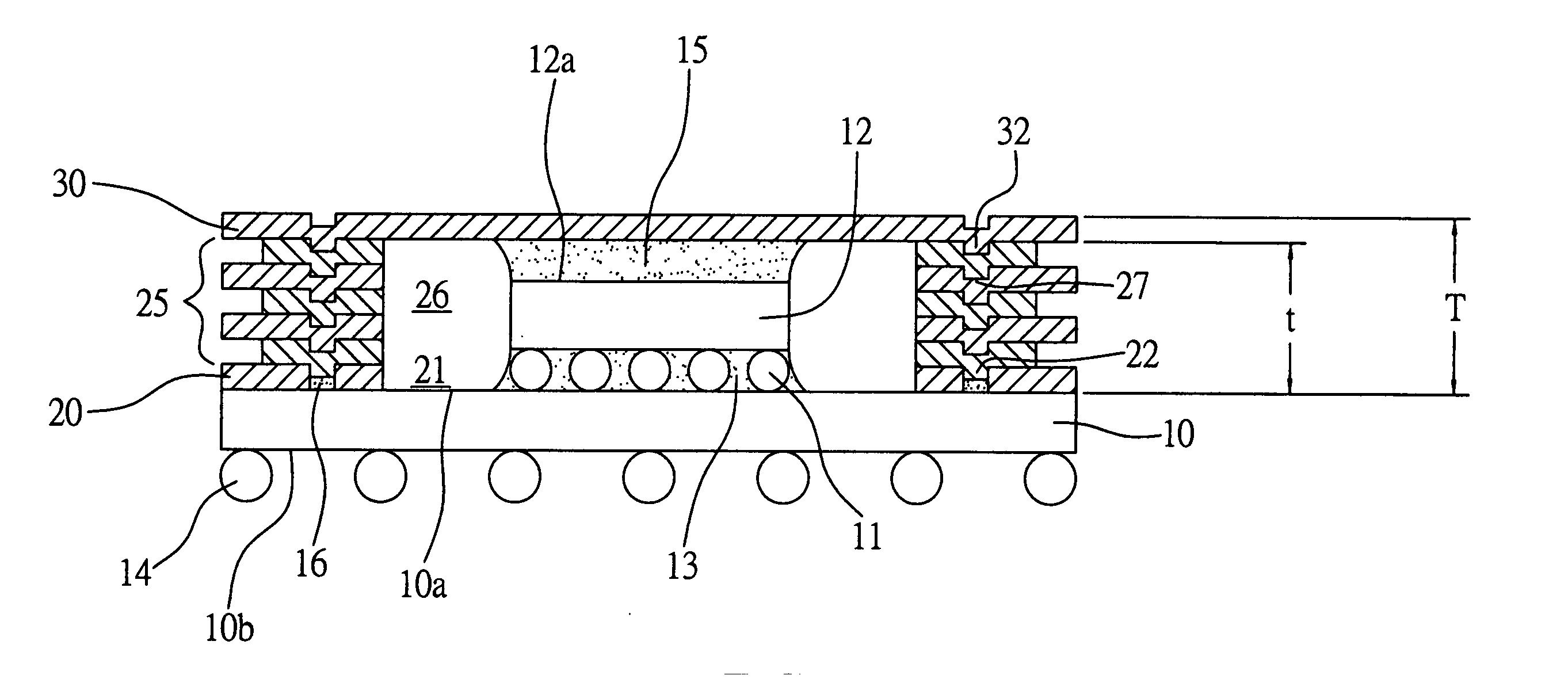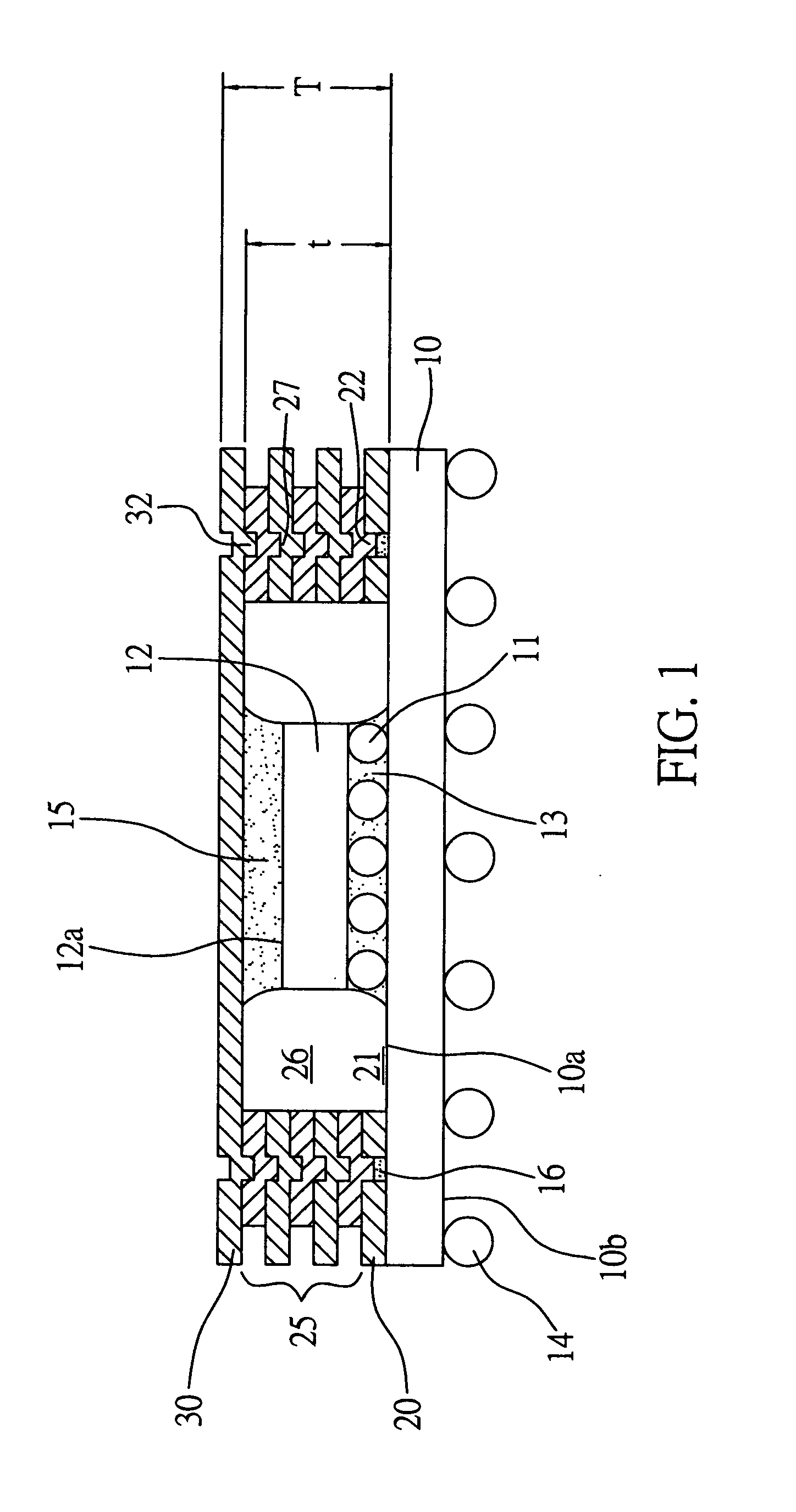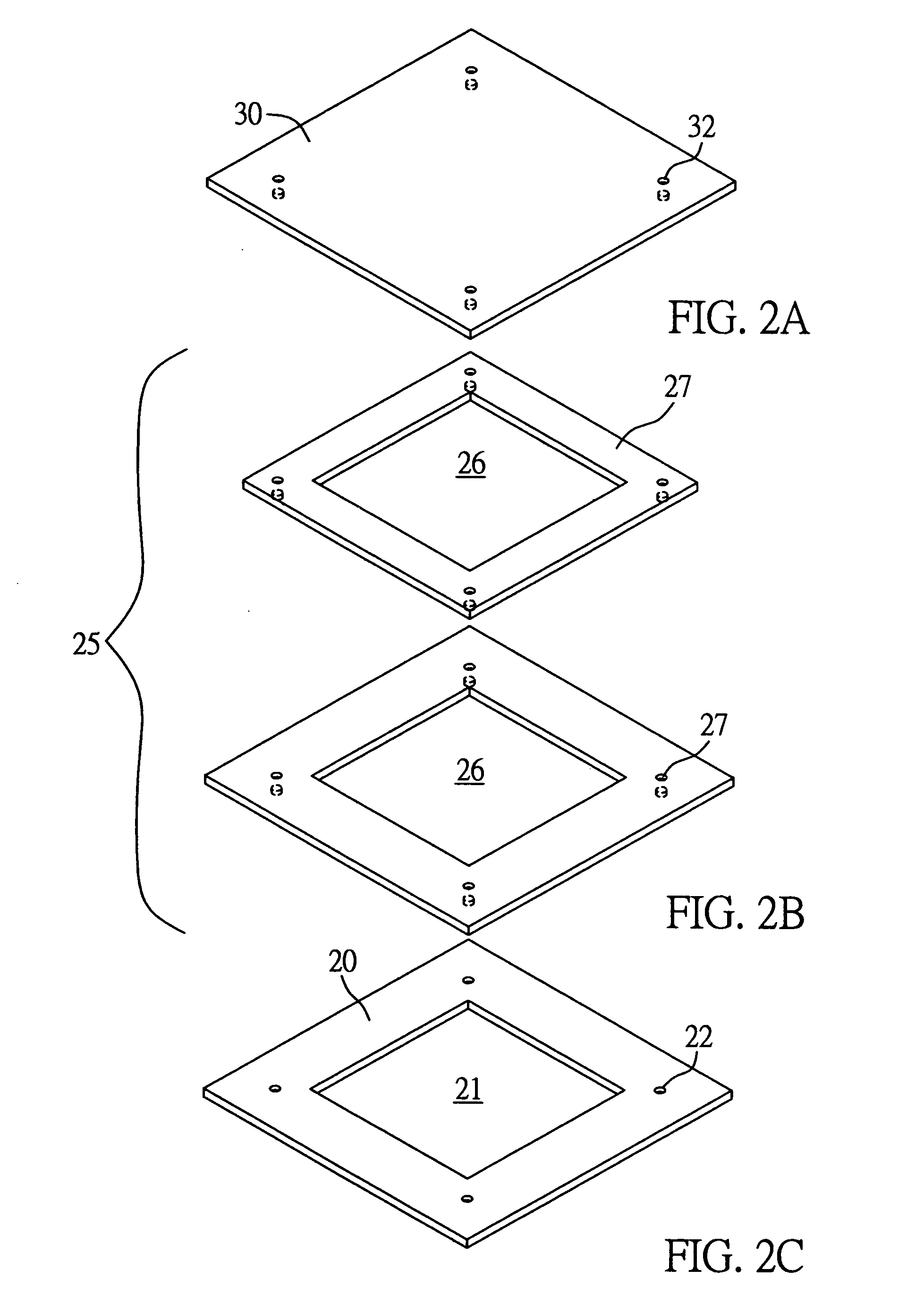Semiconductor package with heat dissipating structure
a technology of semiconductors and heat dissipation structures, applied in the direction of electrical apparatus construction details, basic electric elements, lighting and heating apparatus, etc., can solve the problems of heat dissipation, performance of multi-chip packages, and improve the structure of fcbga packages, so as to improve the adhesion of the second heat sink, and improve the heat dissipation
- Summary
- Abstract
- Description
- Claims
- Application Information
AI Technical Summary
Benefits of technology
Problems solved by technology
Method used
Image
Examples
first embodiment
[0056]FIG. 1 is a cross-sectional view of a semiconductor package having a heat dissipating structure according to the invention. The semiconductor package is a flip-chip ball grid array (FCBGA) and includes a substrate 10 as a chip carrier. A chip 12 is mounted on and electrically connected to a first surface 10a of the substrate 10 via bumps 11. An insulation material 13 fills gaps between the bumps 11 to form an underfill. A bottom heat sink 20 is mounted on the first surface 10a of the substrate 10. Interlayer heat sinks 25 are stacked on the bottom heat sink 20. A top heat sink 30 is stacked on the top of the interlayer heat sinks 25. Solder balls 14 are attached on a second surface 10b of the substrate 10 and electrically connected to the bumps 11. An adhesive 16 is applied over the first surface 10a of the substrate 10 for attaching the bottom heat sink 20 on the substrate 10. The top heat sink 30 is attached on a non-active surface of the chip 12 via a thermal paste which pr...
fifth embodiment
[0069]FIG. 7 is a cross-sectional view of a heat dissipating structure according to the invention. The top heat sink 30 is enlarged so that the area of the top heat sink 30 is much larger than those of the interlayer heat sinks 25 and the bottom heat sink 20 to increase the heat dissipating area. Furthermore, heat may be dissipated via the top heat sink 30. The size or shape of the top heat sink 30 is not particularly limited, as long as it promotes heat dissipation. This is in contrast to the prior art which heat dissipating area cannot be changed due to the limitation of the manufacturing process. Furthermore, heat dissipating fins are not required in this embodiment.
[0070] Sixth Preferred Embodiment
[0071] In addition to the bottom heat sink 20, the interlayer heat sinks 25 and the top heat sink 30, additional heat sinks 45 may be further stacked on the top heat sink 30. The additional heat sinks 45 are plate-shaped heat sink having no hollow portion, as shown in FIG. 8A. The add...
seventh embodiment
[0073] The heat dissipating structure is particularly advantageous when applied in a chip stack package. FIG. 9 is a cross-sectional view of a heat dissipating structure according to the invention. Since the heat dissipating structure has no limitation of aspect ratio, the thickness of the top heat sink 30 is not necessarily increased as the number of the chip stacked increases. The hollow portions of the interlayer heat sinks 25 may be varied to match the size of the chip stack. The chip accommodating space is changed as illustrated in FIG. 9 to shorten the heat dissipating path from an uppermost chip 120.
[0074] Eighth Preferred Embodiment
[0075] Furthermore, when other passive components, in addition to the chips, are mounted on the substrate, the heat dissipating structure of the invention still is suitable for a semiconductor package with a low material cost and optimal heat dissipation. FIG. 10 is a cross-sectional view of a heat dissipating structure according to an eight embo...
PUM
 Login to View More
Login to View More Abstract
Description
Claims
Application Information
 Login to View More
Login to View More - R&D
- Intellectual Property
- Life Sciences
- Materials
- Tech Scout
- Unparalleled Data Quality
- Higher Quality Content
- 60% Fewer Hallucinations
Browse by: Latest US Patents, China's latest patents, Technical Efficacy Thesaurus, Application Domain, Technology Topic, Popular Technical Reports.
© 2025 PatSnap. All rights reserved.Legal|Privacy policy|Modern Slavery Act Transparency Statement|Sitemap|About US| Contact US: help@patsnap.com



